When Welwyn Garden City was first envisaged and developed it had been recognised by its founder, Ebenezer Howard, that industry needed to be incorporated in order to provide a self suffficient community. Land east of the town centre and GNR mainline was put aside for this purpose and Tewin, Bessemer and Broadwater Roads were layed out. Broadwater Road accomodated the most significant factories, principally on the west side backing the railway. To date this area survives largely extant albeit very much expanded, although looks set to be much altered over the next year or two.
The shredded wheat factory, owned previously by Nabisco and now Cereal Partners represents the earliest of factory developments in WGC and was designed in art deco style by the main town planner, Louis de Soissons. Unlike others of its age such as the Firestone or Hoover buidlings, the factory doesn't rely on a striking facade but its huge concrete silos provide a familiar landmark. Anyone with associations with WGC will also be familiar with the smell associated with the factory. Unfortunately Cereal Partners are relocating all production to Staverton and the old Shredded Wheat factory will close over the next year. Plans presently indicate that the site will be redeveloped for apartments although the majority iof the building and silos will be retained as the site is listed Grade II.
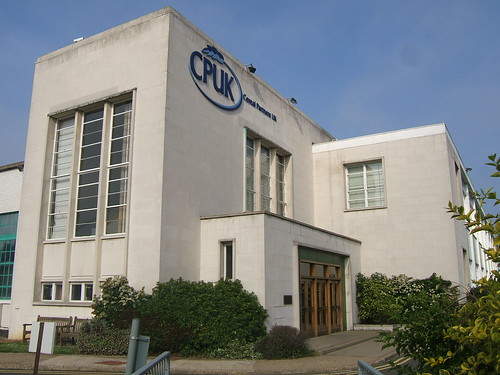
Offices at corner of Broadwater and Bridge roads.
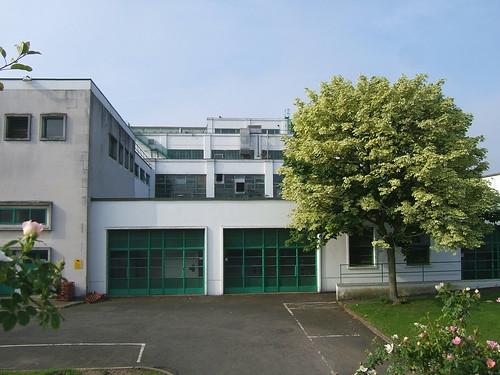
Stepped roofs facing Bridge Road.
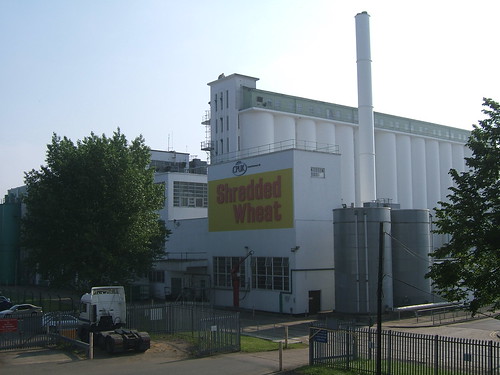
Railway side and silos.
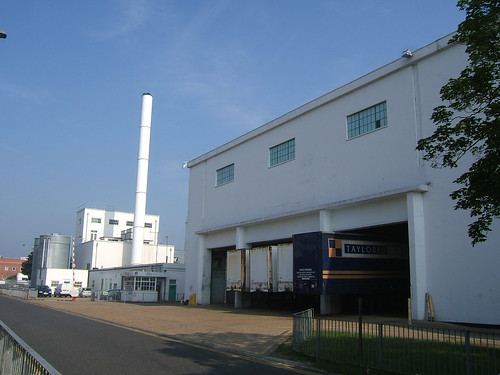
Loading bays and security office on Hyde way.
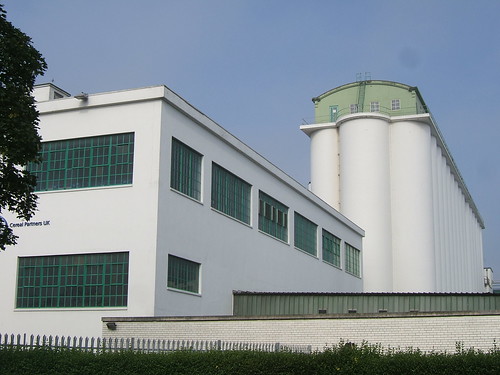
The silos from Broadwater road.
The shredded wheat annexe, south of Hyde Way is unusual in having never been completed. The three corner sections indicate the intended height of the structure. It is set to be demolished after closure.
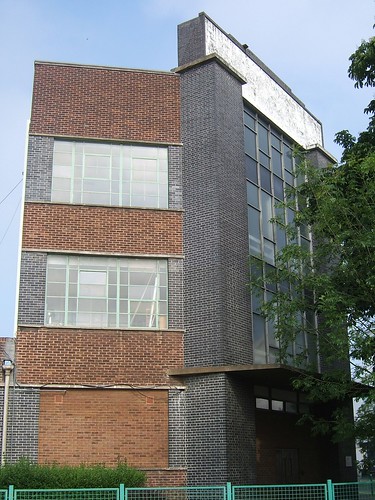
Main entrance, corner of Hyde Way and Broadwater Road.
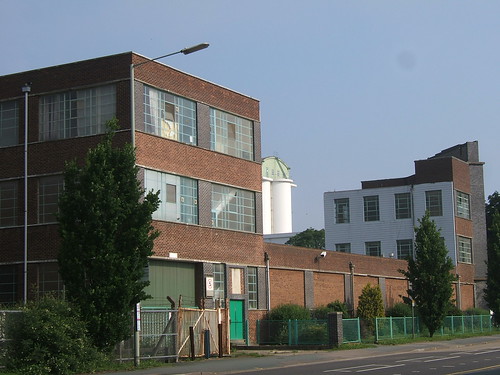
Unfinished frontage.
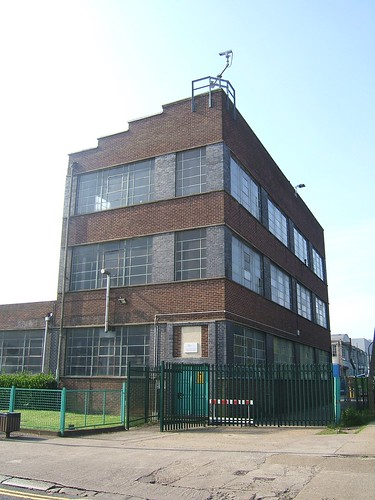
Isolated offices at railway end of Hyde Way
Adjacent to Shredded Wheat is located the former Polycell Factory which closed approx 10 years ago. Much of this site has had a varied history and the principal section which includes a hanger like structure originated as a film studio, owned by British Instructional Films and later the Associated British Picture Corporation. ABPC consolidated production to their main studios at Boreham Wood in 1951 and the studios became awarehouse for Ardath tobacco for ten years. Polycell (manufacturers of Polyfilla) then purchased the site which was much extended to the south, the north part, originally Unity Heating, being sold to Suchard Chocolate and extended as a regional distribution unit and offices in 1968. The north part is now owned by a holding company, Chinacorp, whose plans to clear the site for a temporary car park as an interim to redevelopment was recently refused. The south section is currently heald by Tesco and looks likely to end up as a site for one of their stores. None of the buildings are listed and there appears to be no on-site security presence.
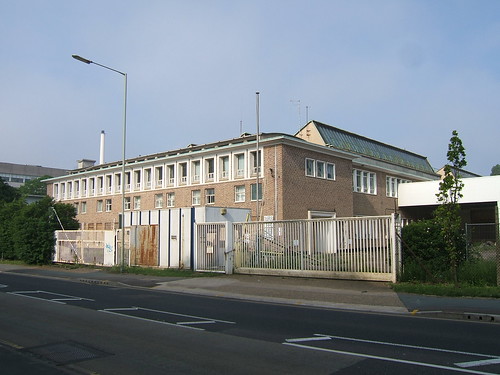
Polycell factory and offices
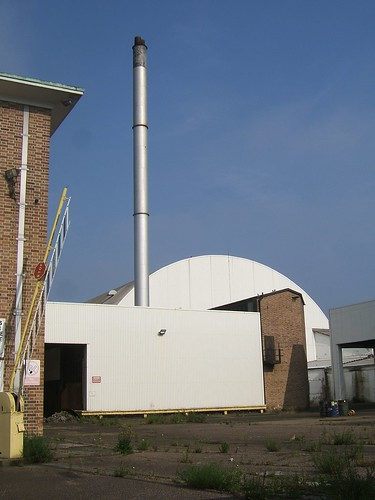
BIF studios behind newer loading bays
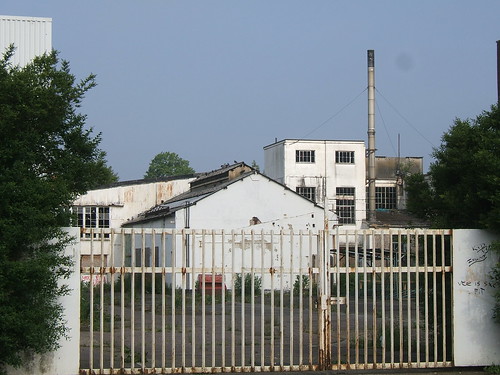
Older factory buildings toward the back of the site.
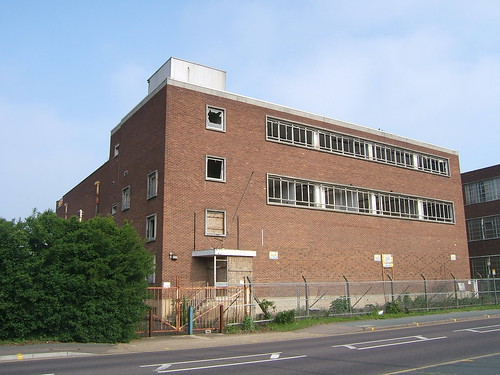
Suchard offices and distribution unit facing Broadwater Road.
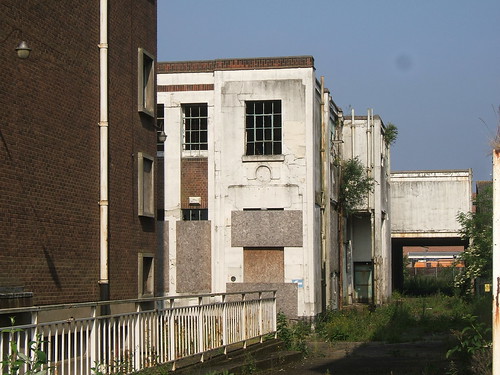
Older factory of Unity Heating (Young, Osmond and Young) behind 1960's offices.
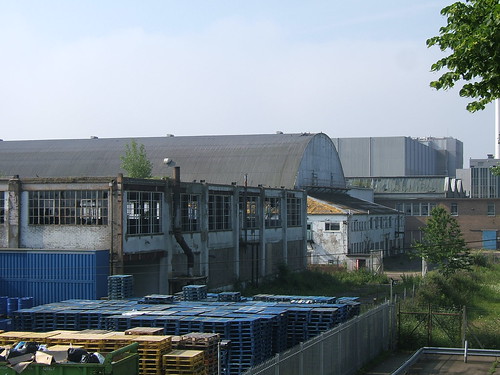
Polycell site from railway footbridge.
Furthest south is Roche Products, part being originally designed by Otto Salvisburg during the 1930's. This is a vast and heavily secured site, incorporating R&D and production for the pharmaceutical industry. The companies headquarters have since transferred a short distance north off Bessemer Road and it seems likely that the Broadwater Road site will be wound down.
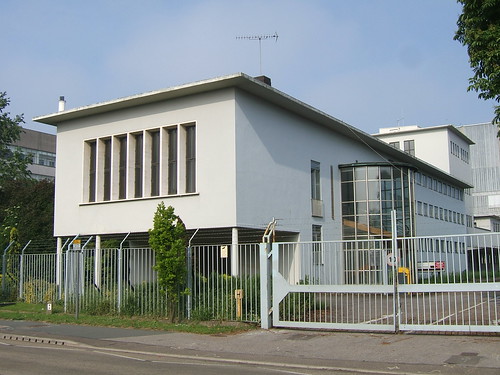
One of the earlier buildings on the Roche site.
The shredded wheat factory, owned previously by Nabisco and now Cereal Partners represents the earliest of factory developments in WGC and was designed in art deco style by the main town planner, Louis de Soissons. Unlike others of its age such as the Firestone or Hoover buidlings, the factory doesn't rely on a striking facade but its huge concrete silos provide a familiar landmark. Anyone with associations with WGC will also be familiar with the smell associated with the factory. Unfortunately Cereal Partners are relocating all production to Staverton and the old Shredded Wheat factory will close over the next year. Plans presently indicate that the site will be redeveloped for apartments although the majority iof the building and silos will be retained as the site is listed Grade II.

Offices at corner of Broadwater and Bridge roads.

Stepped roofs facing Bridge Road.

Railway side and silos.

Loading bays and security office on Hyde way.

The silos from Broadwater road.
The shredded wheat annexe, south of Hyde Way is unusual in having never been completed. The three corner sections indicate the intended height of the structure. It is set to be demolished after closure.

Main entrance, corner of Hyde Way and Broadwater Road.

Unfinished frontage.

Isolated offices at railway end of Hyde Way
Adjacent to Shredded Wheat is located the former Polycell Factory which closed approx 10 years ago. Much of this site has had a varied history and the principal section which includes a hanger like structure originated as a film studio, owned by British Instructional Films and later the Associated British Picture Corporation. ABPC consolidated production to their main studios at Boreham Wood in 1951 and the studios became awarehouse for Ardath tobacco for ten years. Polycell (manufacturers of Polyfilla) then purchased the site which was much extended to the south, the north part, originally Unity Heating, being sold to Suchard Chocolate and extended as a regional distribution unit and offices in 1968. The north part is now owned by a holding company, Chinacorp, whose plans to clear the site for a temporary car park as an interim to redevelopment was recently refused. The south section is currently heald by Tesco and looks likely to end up as a site for one of their stores. None of the buildings are listed and there appears to be no on-site security presence.

Polycell factory and offices

BIF studios behind newer loading bays

Older factory buildings toward the back of the site.

Suchard offices and distribution unit facing Broadwater Road.

Older factory of Unity Heating (Young, Osmond and Young) behind 1960's offices.

Polycell site from railway footbridge.
Furthest south is Roche Products, part being originally designed by Otto Salvisburg during the 1930's. This is a vast and heavily secured site, incorporating R&D and production for the pharmaceutical industry. The companies headquarters have since transferred a short distance north off Bessemer Road and it seems likely that the Broadwater Road site will be wound down.

One of the earlier buildings on the Roche site.












































